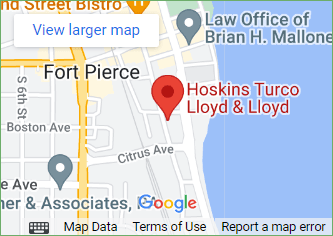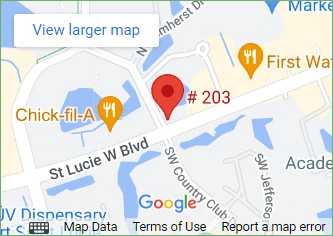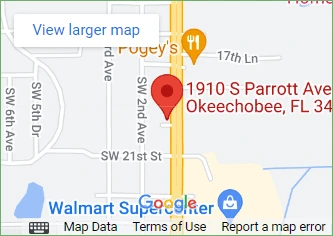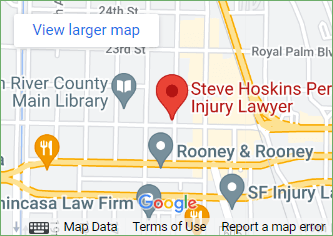Auto Accident Settlement
Can I Receive Veterans’ Disability and Work at the Same Time?
Veterans’ Disability benefits are granted based on a service-related condition that substantially limits the recipient’s ability to conduct an ordinary life. There is no requirement for the recipient to be unemployed or to have a disability that would prevent employment, aside from one exception: TDIU.
Those applying for Total Disability Based on Individual Unemployability (TDIU) benefits cannot have “substantially gainful employment” and still be eligible to receive this benefit. It is possible to still work and earn some income while still being eligible for the benefit, but the Department of Veterans Affairs (VA) will closely scrutinize every amount of income you make, and they may re-evaluate your eligibility more frequently if you start to earn a steady income.
Aside from TDIU, most other VA programs do not prohibit working or earning a certain amount of income. At the same time, the income you earn can be used as a factor when the VA calculates your disability level and your level of need, in some cases. This possibility makes it important to understand the VA’s criteria for your currently designated (or recently applied-for) level of disability.
For more information on how the VA calculates disability and how to appeal a decision, you can schedule a free, no-obligation case review with a Florida veterans’ disability lawyer at Hoskins, Turco, Lloyd & Lloyd. Call (866) 460-1990 or contact us online to schedule your free appointment now.
No Income Limits for Most Veterans’ Disability Benefits
VA benefits, including VA Disability, differ from most public benefits in the U.S. in that they are based almost wholly on a service-related condition rather than a demonstrated need. With programs like Social Security Disability Income (SSDI), for example, the recipient must demonstrate a lack of “substantial gainful activity” in order to be eligible. With VA disability benefits, however, they are intended to compensate you for a condition you acquired during service, regardless of your current means. Put simply, it’s a way for the U.S. government to be able to say it takes care of its veterans and pays them for the sacrifices they have made.
Your Ability to Work Could Possibly Affect Your Disability Rating in Some Cases
VA Disability benefits are calculated primarily using a “disability rating” that is determined after an exam and a review of the applicant’s condition. Medical factors are primarily considered when determining the applicant’s disability rating, but some outside factors are brought in to determine the limitations that may stem from your disability. The applicant may be asked questions about their ability to cook and clean, care for themselves, maintain hygiene, and generally function throughout day-to-day activities. While the responses to these questions can have less of an impact than medical tests or a verifiable diagnosis, they can find their way into the findings report from time to time.
All of this to say: it is possible that if you report that you are working during your application process or if it is discovered that you started working and obtaining income after your approval that, in some cases, your disability rating and overall condition could be interpreted differently. For such an interpretation to actually affect someone’s eligibility for VA Disability is rare, but it is in the realm of possibility.
With that said, once a disability rating is established, it can rarely be changed unless there is a significant medical improvement or other substantial reason. Further, it is worth reiterating that medical data and exam findings matter more to your disability rating than your reported daily activities.
You Can Have a 100% VA Disability Rating and Still Work
Disability ratings are calculated through a formula, especially when the applicant for VA Disability has more than one reported condition. The math used to add up disability can add up to 100%, even when the applicant does not have what is considered “total permanent disability” by many insurers and medical examiners. Because of the way the calculation works, it is possible for someone who is capable of working part-time or full time to still receive a 100% disability rating and the corresponding VA Disability benefit.
The only time that employment can have a direct effect on your ability to claim VA Disability is when you receive the Total Disability Based on Individual Unemployability (TDIU) benefit.
You Are Expected to Not Be Able to Work While Receiving Total Disability Based on Individual Unemployability (TDIU) Benefit
The one exception to the VA’s rules about working while receiving disability is if you are attempting to claim Total Disability Based on Individual Unemployability (TDIU). There are, technically, no rules stating that you must be unemployed at the time you apply, but if you are employed that will be considered as a factor in your eligibility.
Specifically, the rules of TDIU bar “substantially gainful employment,” which the VA defines as “employment that is ordinarily followed by the nondisabled to earn their livelihood with earnings common to the particular occupation in the community where the veteran resides.”
You are able to earn some amount of income without arousing suspicion or prompting the VA to reconsider your disability status, but once it meets the “substantially gainful employment” definition, you will likely have your status reconsidered. This possibility can emerge regardless of whether you work part-time or freelance. In some extreme instances where you are volunteering extensively and not accepting pay, the VA may consider whether the work you performed could constitute “substantially gainful employment” based on how someone would normally be compensated for this type of labor.
One exception is if you are obtaining “marginal employment”. The definition of marginal employment is that it is half the scheduled hours for a typical position in the same job role, or it is employment where you receive less than one-half the average wage for that position. This exemption can apply to work performed for family and friends, as well.
The general test used for determining whether employment is substantially gainful or marginal is to consider whether the individual earns less than the poverty line income for their region.
Talk to a VA Disability Lawyer if You Have Concerns or Wish to Appeal a Decision
The laws surrounding VA Disability and other benefits can be murky, and you can sometimes feel stuck in the wheels of bureaucracy when trying to apply or appeal a termination of benefits. In most instances, you shouldn’t have to worry about being employed while receiving VA Disability, but if you have concerns you can refer to a Florida VA disability lawyer near you.
Hoskins, Turco, Lloyd & Lloyd can provide you with an experienced attorney to manage your case, offer advice, and provide you with representation when facing the VA or other institutions. Learn more about your legal rights and options within the disability system when you call (866) 460-1990 or contact us online to schedule a no-risk, no-cost case review.
Verdicts and Settlements
$1.2 Million
$1.6 Million
Wrongful Death Settlement
$11.1 Million
Settlement for motorcycle accident
Locations
Ft. Pierce, FL 34950
Suite 203, Port St. Lucie, FL 34986
Okeechobee, FL 34974
Vero Beach, FL 32960
The hiring of a lawyer is an important decision that should not be based solely upon advertisements. Before you decide, ask us to send you free written information about our qualifications and experience.
We are a debt relief agency and attorneys. We help people file for Bankruptcy relief under the Bankruptcy Code. The hiring of a lawyer is an important decision that should not be based solely upon advertisements. Before you decide, ask us to send you free information about our qualifications and experience.
Hoskins, Turco, Lloyd & Lloyd © 2020 All Rights Reserved. Terms of Use and Privacy Policy
This site is protected by reCAPTCHA and the Google Privacy Policy and Terms of Service apply.





